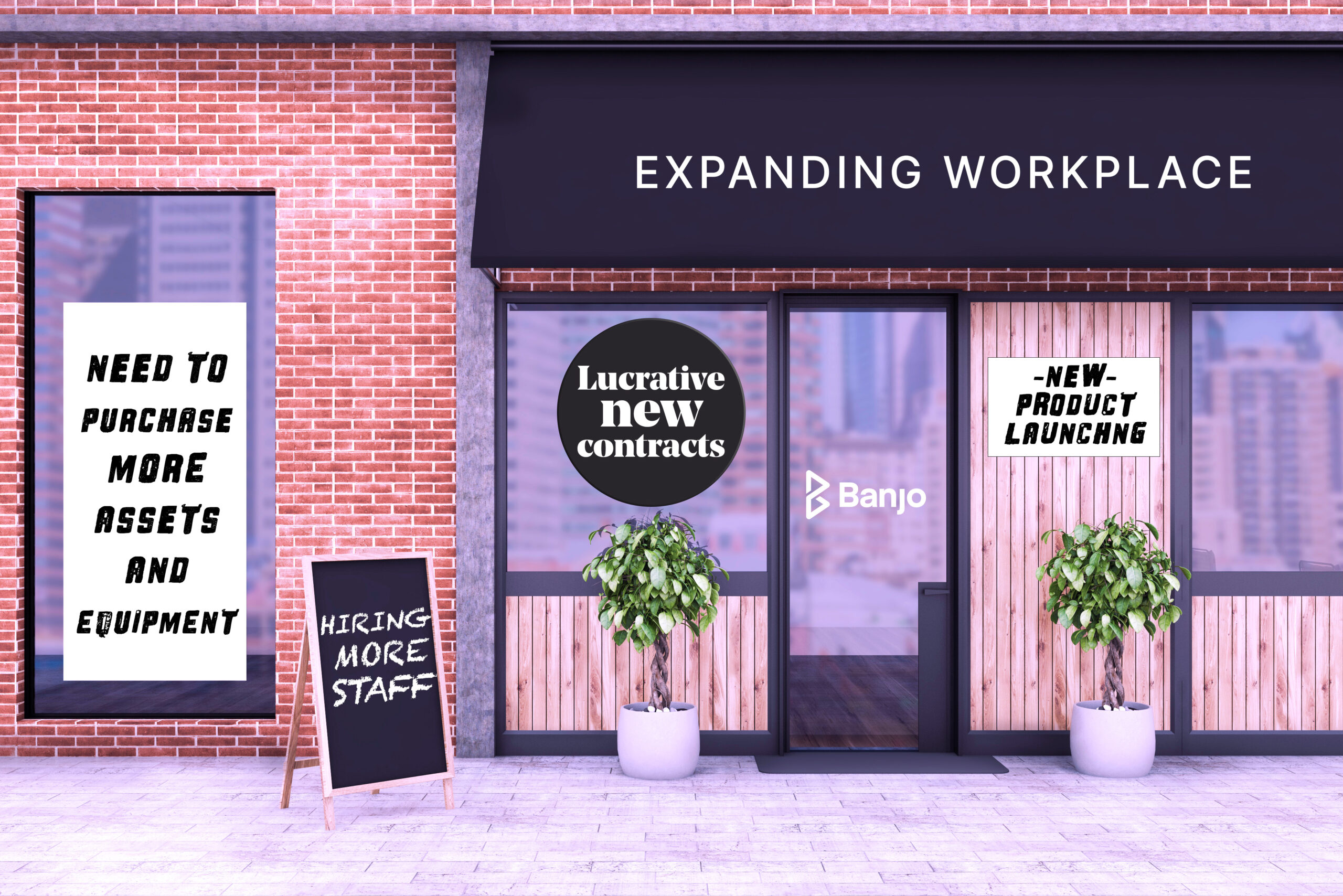Running a business is tough. Full stop. But, as a broker, you’re in an ideal position to help an SME move forward with the right finance.
For a new SME, the first two years are the toughest and have the highest failure rate (up to 60% of businesses)^. If an SME can overcome these initial challenges and enter their third year, they’re usually poised for what’s considered the Growth stage.
Here’s how all the stages work, including at what points a broker can offer funding that is sure to make the world of difference.
For a new SME, the first two years are the toughest and have the highest failure rate (up to 60% of businesses)^. If an SME can overcome these initial challenges and enter their third year, they’re usually poised for what’s considered the Growth stage.
Here’s how all the stages work, including at what points a broker can offer funding that is sure to make the world of difference.

THE GROWTH STAGE
(Year 3+ of Business)
= growing sales + normalising costs + some profits
Triggers for funding
- Expanding workspace
- Hiring more staff
- Purchasing more equipment
- Lucrative new contracts
Types of funding
- Business Loans are needed to help sustain growth and navigate through cashflow challenges or strategic reinvestment of profits back into the business.
How Banjo helped one SME to grow
A Victorian-based education and training company – with a robust three-year history and a $5.9 million annual turnover – had recently completed building a proprietary online learning platform, signalling a pivotal moment for further expansion.
To capitalise on this opportunity, the business required a financial injection to support the hiring of additional staff and to meet the escalating demand for their training packages. This infusion of capital would not only facilitate the company’s immediate growth but also foster organic expansion in other areas of their operations.
In close collaboration with their trusted broker, the company was able to secure a tailored $250,000 Banjo Business Loan Express in 24 hours.
Banjo’s Working Capital Express is designed specifically for Aussie SMEs' time-critical funding with minimal documentation, and rates starting from 12% simple annual rate.* This means SMEs receive fast injections of working capital to get through their growth phase.
For this education and training company, the Banjo Working Capital Express loan enabled them to take their business into the maturity stage.
To capitalise on this opportunity, the business required a financial injection to support the hiring of additional staff and to meet the escalating demand for their training packages. This infusion of capital would not only facilitate the company’s immediate growth but also foster organic expansion in other areas of their operations.
In close collaboration with their trusted broker, the company was able to secure a tailored $250,000 Banjo Business Loan Express in 24 hours.
Banjo’s Working Capital Express is designed specifically for Aussie SMEs' time-critical funding with minimal documentation, and rates starting from 12% simple annual rate.* This means SMEs receive fast injections of working capital to get through their growth phase.
For this education and training company, the Banjo Working Capital Express loan enabled them to take their business into the maturity stage.
THE MATURITY STAGE
(8 to 10 years in business)
= steady sales + declining costs + growing profits
Triggers for funding
- Further investment focus on a particular product, business unit or function
- Possible acquisition of a competing business
- Regulatory, seasonal or market shifts
- Concerns regarding ongoing profitability
Types of funding
- SMEs at this stage may need the equipment or machinery to make Asset Finance a viable option, or they could seek a Business Loan to give their profits a further boost.
How Banjo helped one SME to mature
A NSW-based technology provider to the hospitality industry had been in operation for seven years with an annual turnover of $30 million. Their revenues and growth were increasing substantially but additional working capital was still needed to fund improvements to their operations, including the purchase of more software for their client analytics solution.
After closely analysing the performance of multiple entities in their control, Banjo lent the organisation $2 million across two of their entities as part of our Banjo Business Loan solution.
Consequently, the business was able to utilise the funding injection to strengthen their current position and implement sustainable growth strategies for the future.
After closely analysing the performance of multiple entities in their control, Banjo lent the organisation $2 million across two of their entities as part of our Banjo Business Loan solution.
Consequently, the business was able to utilise the funding injection to strengthen their current position and implement sustainable growth strategies for the future.
THE EXTENSION STAGE
(10 to 15 years in business)
= declining sales + steady costs + declining profits
Triggers for funding
- Contemplating exit or succession plans, or restructuring
- Possible acquisition of a competing business
- Launching new products or service lines
- Renaming or rebranding to re-engage with evolving markets
Types of funding
- Given the business is still a profitable, Asset Finance is a viable solution or an unsecured business loan could be more attractive.
How Banjo helped one SME to extend
With a rich 30-year operating history and annual turnover of $18 million, a Queensland-based manufacturing business specialising in road marking paint for local and overseas markets sought a $1 million asset financing facility to purchase equipment from a company who were winding down their operations.
As well as the machinery playing a key role in the client’s growth strategy, the asking price for the equipment was extremely competitive due to the vendor ceasing to trade.
Banjo worked directly with their broker to gather the information required for the application. Approval for a $1 million Banjo Business Loan was provided within 48 to 72 hours of the application being submitted.
This loan allowed the SME to seize an opportunity that otherwise would have been unavailable and see their business into an extension of the traditional lifecycle.
As well as the machinery playing a key role in the client’s growth strategy, the asking price for the equipment was extremely competitive due to the vendor ceasing to trade.
Banjo worked directly with their broker to gather the information required for the application. Approval for a $1 million Banjo Business Loan was provided within 48 to 72 hours of the application being submitted.
This loan allowed the SME to seize an opportunity that otherwise would have been unavailable and see their business into an extension of the traditional lifecycle.
Banjo knows the business lifecycle
Download your complimentary eResource
Ready to do greater deals?
Become a Banjo Partner today
^ Insight into Small Businesses in Australia: 2023 Statistics 2024, lawpath.com.au.


